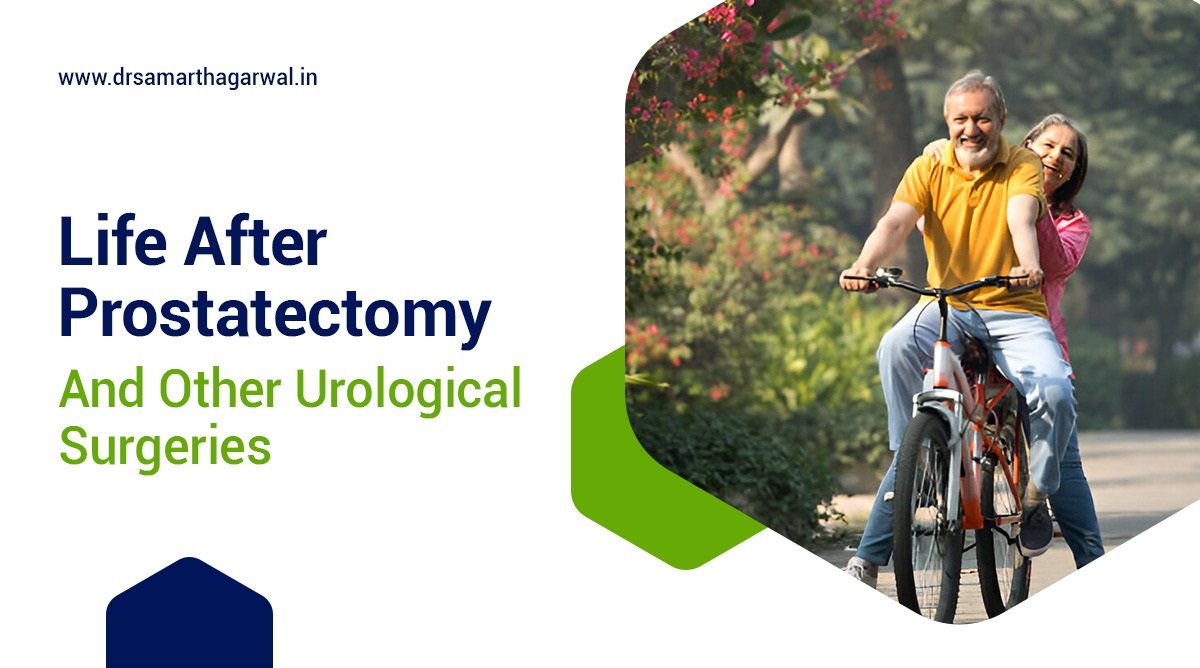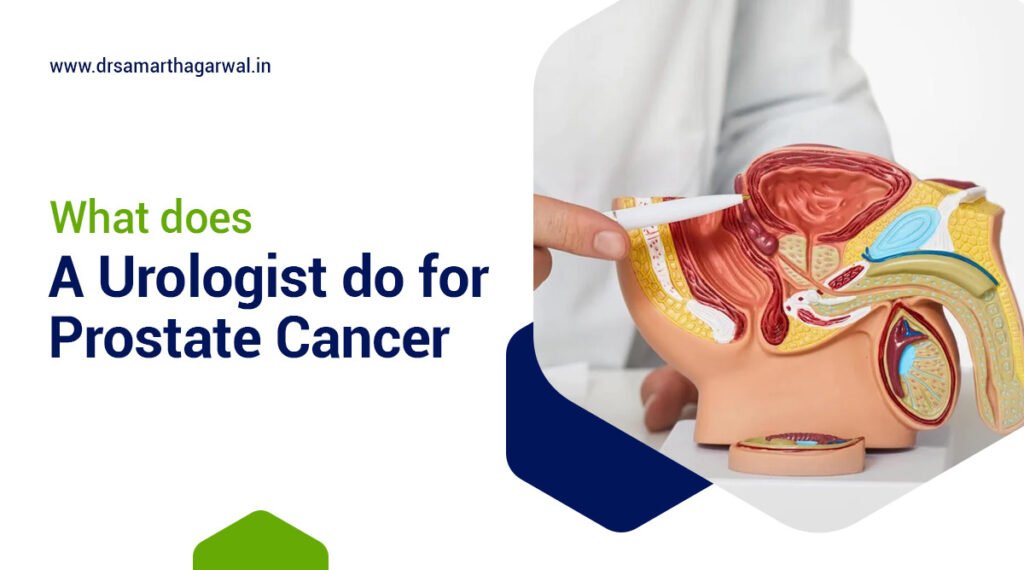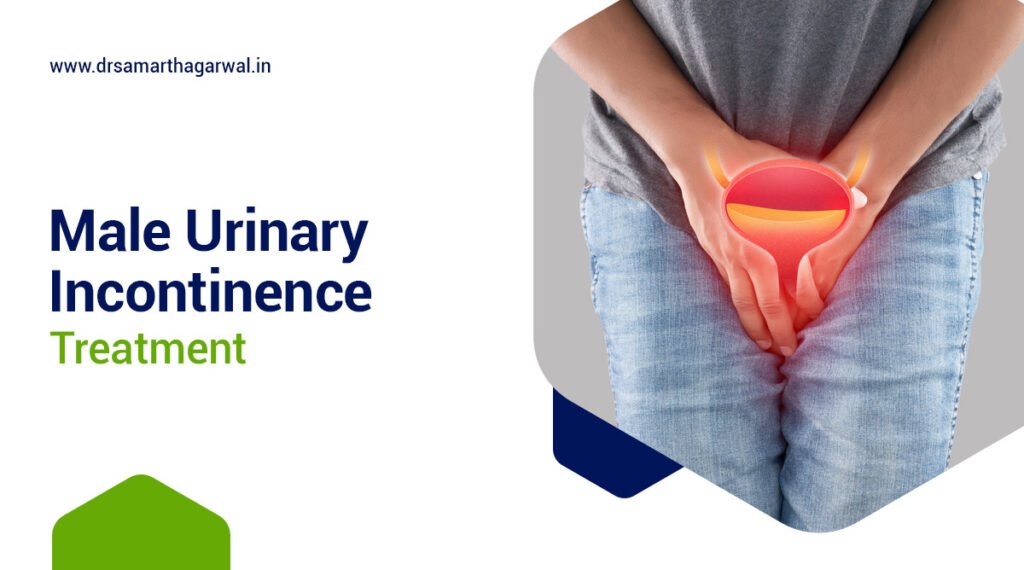Undergoing a prostatectomy, often utilizing techniques such as Robotically Assisted Laparoscopic Radical Prostatectomy, can be a significant turning point in a man’s health journey, affecting not just physical well-being but also daily life.
This article explores what to expect after this surgery, including options like the da Vinci robotic system, from the recovery process to potential side effects and how to manage them effectively.
It also discusses necessary lifestyle changes, including dietary adjustments, bladder control through Kegel exercises, and maintaining sexual health, along with guidance on follow-up care.
Additionally, it touches on life after other urological surgeries, including minimally-invasive procedures, providing a comprehensive overview for anyone navigating this vital stage of their health.
What is a Prostatectomy?
A prostatectomy is a surgical procedure that involves the removal of the prostate gland, primarily performed to treat prostate cancer, and may address symptoms such as urinary incontinence and erectile dysfunction. This operation can take various forms, including robotic, laparoscopic, and radical techniques, each designed to target cancerous tissues effectively while minimizing impact on surrounding areas. The choice of surgery type, including options like robotic, laparoscopic, and radical techniques, often depends on the stage of cancer and the patient’s overall health, which can influence the success rate and recovery process involved post-surgery.
What is Life Like After a Prostatectomy?
Life after a prostatectomy can present a range of new challenges and adjustments for patients, significantly affecting their quality of life. Many individuals experience side effects such as urinary incontinence and erectile dysfunction post-surgery, which can lead to emotional distress and complications during recovery. Understanding these changes is essential for patients, as it can assist them in seeking appropriate support and rehabilitation from health specialists, such as urologists like Dr. Samarth Agarwal.
What is the Recovery Process Like?
The recovery process after a prostatectomy varies significantly among patients, typically spanning several weeks to months depending on individual health status and surgical technique used. During this time, many individuals encounter an array of physical and emotional adjustments.
The recovery process after a prostatectomy varies significantly among patients, typically spanning several weeks to months depending on individual health status and surgical technique used, with the involvement of specialists to guide therapy and recovery time. During this time, many individuals encounter an array of physical and emotional adjustments, including managing symptoms like incontinence and erectile dysfunction.
These changes include not only physical healing but also coping with possible challenges like incontinence and erectile dysfunction. Most patients can expect initial recovery to take approximately two weeks, where basic activities might gradually resume. By six to eight weeks, significant improvements are often noted, though some men may still experience lingering issues.
- Complications: In some cases, complications such as urinary leaks or infections may arise, necessitating closer monitoring and additional therapy, potentially including hormone therapy.
- Patient Experiences: Individual testimonials reveal that those who engaged in regular physical therapy reported quicker recoveries and more effective management of side effects.
It’s essential for patients to stay informed and proactive in their recovery journey, facilitating better outcomes and improved quality of life.
What are the Possible Side Effects?
Post-operative side effects from a prostatectomy can significantly impact a patient’s daily life, with the most common issues being urinary incontinence and erectile dysfunction. These side effects may arise due to the nature of the surgery, and understanding their potential onset can help patients manage their recovery more effectively. In some cases, hormone therapy might be considered to address long-term complications associated with prostate cancer treatment.
Post-operative side effects from a prostatectomy can significantly impact a patient’s daily life, with the most common issues being urinary incontinence and erectile dysfunction. These side effects may arise due to the nature of the surgery, and understanding their potential onset can help patients manage their recovery more effectively. In some cases, hormone therapy might be considered to address long-term complications associated with prostate cancer treatment.
Statistics indicate that approximately 30% to 80% of men experience some form of urinary incontinence after the procedure, while erectile dysfunction affects about 40% to 60% of patients within the first year. Experts suggest that while these side effects can be distressing, various management strategies can significantly improve quality of life.
- Medications: Certain medications can aid in alleviating symptoms of incontinence and erectile dysfunction.
- Pelvic Floor Exercises: Strengthening pelvic muscles through targeted exercises can promote urinary control.
- Lifestyle Changes: Adopting healthier habits such as dietary adjustments and regular physical activity can play a crucial role in recovery.
By actively engaging in these management strategies, men can navigate the challenges following prostatectomy with greater confidence.
How Can One Manage Side Effects?
Managing side effects after a prostatectomy is crucial for restoring quality of life and may involve a combination of lifestyle changes, medications, and therapeutic options. Patients need to be proactive in addressing these effects through comprehensive strategies that include diet modifications, regular exercise, and adequate hydration. This multi-faceted approach not only promotes physical recovery but also enhances emotional well-being during the healing process.
Along with Kegel exercises for pelvic floor strengthening, implementing a balanced diet rich in fruits and vegetables can provide essential nutrients that encourage healing. Establishing a routine that incorporates light physical therapy can aid in regaining strength and mobility. The use of vacuum devices is effective for erectile dysfunction, offering a non-invasive option. For those seeking permanent solutions, penile implants can provide long-lasting results and improve self-esteem.
- Engagement with healthcare providers, including seeking a second opinion, is vital.
- Regular follow-ups help in personalizing treatment.
- Utilizing support groups can enhance emotional resilience.
By maintaining open lines of communication with health specialists and exploring various resources, individuals can navigate this journey more effectively and improve their overall quality of life.
What Changes Can One Expect in Their Lifestyle After Prostatectomy?
Following a prostatectomy, many patients encounter significant lifestyle adjustments that can affect their overall health and emotional well-being. These changes, influenced by physical recovery and mental adaptation to new realities, often lead to shifts in daily routines, social interactions, and personal health priorities. Addressing these lifestyle changes in a supportive environment can aid in minimizing emotional distress and promoting a positive quality of life.
What Dietary Changes are Recommended?
Dietary changes after a prostatectomy can play a pivotal role in recovery and overall health, particularly for those affected by prostate cancer. Patients are often advised to incorporate nutrient-rich foods that support healing, such as fruits, vegetables, and whole grains, while minimizing processed foods and sugars.
By focusing on a balanced diet, individuals can significantly enhance their recovery process. This approach not only aids in physical healing but also contributes to emotional well-being and stress reduction. Research indicates that certain foods, rich in antioxidants, can help reduce inflammation and promote optimal recovery.
- Fiber-rich foods, like oats and legumes, can improve digestion and support hormonal balance.
- Healthy fats from sources such as avocados and fish are vital for heart health and can combat fatigue.
- Hydration is equally crucial; water intake helps flush toxins and maintain overall bodily functions.
Ultimately, recognizing the significance of nutrition following a prostatectomy encourages patients to embrace healthier lifestyles that foster long-term health benefits and quality of life enhancements.
How Can One Maintain Their Sexual Health?
Maintaining sexual health after a prostatectomy can be challenging due to potential erectile dysfunction and changes in libido, but various options exist to help manage these issues. Patients can explore treatments such as vacuum devices, penile implants, and rehabilitation exercises designed to enhance sexual function and intimacy. Engaging with healthcare providers for personalized strategies can lead to improved sexual health outcomes.
Along with these promising options, individuals may find it beneficial to incorporate lifestyle changes that support overall well-being, such as regular exercise and a balanced diet. Seeking out counseling and support groups can also provide valuable emotional backup, helping patients and their partners navigate the complexities of intimacy post-surgery.
- Vacuum devices can create blood flow necessary for erections and are often non-invasive.
- Pill-based medications are commonly prescribed, but results may vary from person to person.
- Pelvic floor exercises can strengthen muscles involved in sexual function.
Continuous communication with healthcare providers ensures that patients are kept informed about the latest therapies and treatments available, promoting a proactive approach to sexual health maintenance.
What are the Recommended Follow-up Care?
Follow-up care after a prostatectomy is crucial for monitoring recovery and addressing any complications that may arise.
Regular check-ups with specialists, such as those at Portland-Vancouver’s Compass Oncology, can ensure that patients are healing properly and provide an opportunity to discuss any ongoing side effects, such as urinary incontinence or erectile dysfunction. A proactive approach to follow-up care can significantly contribute to a patient’s long-term health and quality of life.
Ensuring that the individual engages in patient-centered follow-up care, incorporating surgery options such as Robotically Assisted Laparoscopic Radical Prostatectomy can lead to more effective recovery strategies. Private consultations with urologists and oncologists play an essential role in:
- Monitoring PSA levels to detect potential recurrence of cancer
- Assessing the effectiveness of rehabilitation programs for urinary control, including Kegel exercises
- Offering solutions for sexual health challenges like erectile dysfunction, using vacuum devices and penile implants
It’s important for patients, including those dealing with prostate cancer and prostatectomy, to actively communicate any concerns during these appointments, as engagement can substantially influence health outcomes. By adhering to recommended follow-up protocols and fostering a strong relationship with healthcare professionals and support groups like CancerCare, patients can navigate their recovery journey more effectively, ultimately enhancing their overall well-being, even when managing conditions such as lymphedema and urinary incontinence.
What is Life Like After Other Urological Surgeries?
Life after urological surgeries, such as those for bladder or kidney conditions, can mirror the experiences faced by prostatectomy patients, involving a range of recovery challenges and lifestyle adjustments, including managing prostate cancer with hormone therapy. Complications can arise during the recovery phase, necessitating ongoing support and management strategies tailored to individual patient needs.
FAQ
What are some common side effects after prostatectomy and other urological surgeries?
Some common side effects after prostatectomy and other urological surgeries include urinary incontinence, erectile dysfunction, and changes in sexual function. These side effects, including urinary incontinence and erectile dysfunction, can improve over time with proper care and treatment.
How long is the recovery period after prostatectomy and other urological surgeries?
The length of recovery after prostatectomy and other urological surgeries can vary, but typically it takes 4-6 weeks before a person can return to normal activities. It is important to follow your doctor’s instructions for optimal recovery.
What lifestyle changes may be necessary after prostatectomy and other urological surgeries?
Depending on the individual’s condition and surgery, lifestyle changes may be necessary after prostatectomy and other urological surgeries. These may include changes in diet, exercise, and managing symptoms like urinary incontinence.
What type of follow-up care is needed after prostatectomy and other urological surgeries?
Regular follow-up care with your doctor after prostatectomy and other urological surgeries is important to monitor recovery and any potential complications. Your doctor may also recommend screenings, hormone therapy, or additional treatments if necessary.

Contact Dr. Samarth Agarwal if you have any questions or concerns about your Urinary health!






